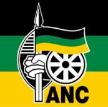In 1964 that great observer of Indian politics, W.H. Morris-Jones, noted that the Indian National Congress "acquires a consolidation of its domination because it operates in a political society in which nothing can succeed like success and in which there is almost every reason why the pendulum should not swing."
This dynamic was very much in evidence during the first thirteen years of African National Congress dominance in South Africa. Most opposition parties - and their supporters - became demoralised by the apparent futility of their enterprise. The ANC was the ‘only game in town,' the one true church, immortal, the only basket in which to keep one's eggs, the party that was going to rule South Africa until Jesus came back.
Depending on which side of the political divide you stood a vicious or virtuous cycle ensued. The opposition seemed to became ever weaker and more fragmented, and the ANC ever stronger. This was reflected in election results and opinion polls which up until 2007 reflected an apparently inexorable increase in ruling party support. When floor crossing was introduced the ruling party exerted a magnetic attraction to every pliable politician in opposition ranks (see article). In this situation of consolidating dominance it was relatively easy too for the ANC to maintain discipline as the alternative for the individual was the moral and political wilderness.
It remains to be seen whether the Congress of the People led by Mbhazima Shilowa and Terror Lekota fulfils its potential, and draws significant support away from the ruling party. But it does seem probable that the pendulum has reached its peak, and is beginning to swing against the ruling party.
The internal dissension within the ANC over the past few years may not have allowed the opposition to make inroads into the ruling party's support base (see survey) but it has improved their morale, and inspired them to co-operate, most notably in Cape Town.
Writing in 1971 Morris-Jones similarly observed that before the 1967 election in India - in which the INC's majority was substantially reduced - "nothing so strongly worked to bring those outside Congress together than the sight of Congress tearing itself apart and lacking for the first time a towering leader who could both rally the party and exert a strong personal appeal to the electorate."
Despite Thabo Mbeki's recall, the ANC is still struggling with a diffusion of leadership. There is the obvious divide between the head of the party (Jacob Zuma) and the head of state (Kgalema Motlanthe). But the alliance barons who helped bring Zuma to victory at Polokwane - Blade Nzimande and Zwelinzima Vavi - also speak with their own independent authority.
From a democratic point of view such "collective leadership" is preferable to that which prevailed under former president Thabo Mbeki (see here). The cost of this approach is that there is no one leader able to project an aura of self-confidence and certainty to a doubtful electorate. The wild talk of ANCYL President Julius Malema, Vavi, and others, has also handed the breakaway a platform on which to campaign. It left Zuma looking weak and indecisive when he failed to curtail it, and also continues to obscure the good work being done by the new ministers of health and justice.
It still remains highly unlikely that the ANC will lose their majority in the 2009 elections. But even non-fatal electoral setbacks can be difficult for a dominant party to handle. It is, for instance, more of a challenge to maintain internal discipline when there is a growing opposition to cross over to. That moral self-confidence can also dissipate, once an opposition victory at the next election becomes possible. The weak and opportunistic politicians attracted into party ranks during the period of consolidating dominance became an unreliable liability.
Morris-Jones describes the effects of the 1967 electoral setback (see here) on Congress as follows. The party, he wrote, "emerged from the... elections in a state of low morale and some of its senior leaders were evidently in a state of severe shock aggravated by the fact that several of them had suffered crushing personal electoral defeats... The central leadership seemed helpless to restore any semblance of nation-wide discipline."
This last danger is mitigated for the ANC by South Africa's proportional representation electoral system with its built in discipline. India, by contrast, had a constituency based system. But the ruling party in South Africa will still face a formidable challenge. For if nothing succeeds like success for a dominant party, nothing quite demoralises like decline.
Click here to sign up to receive the Politicsweb daily headlines in your email inbox in the morning

